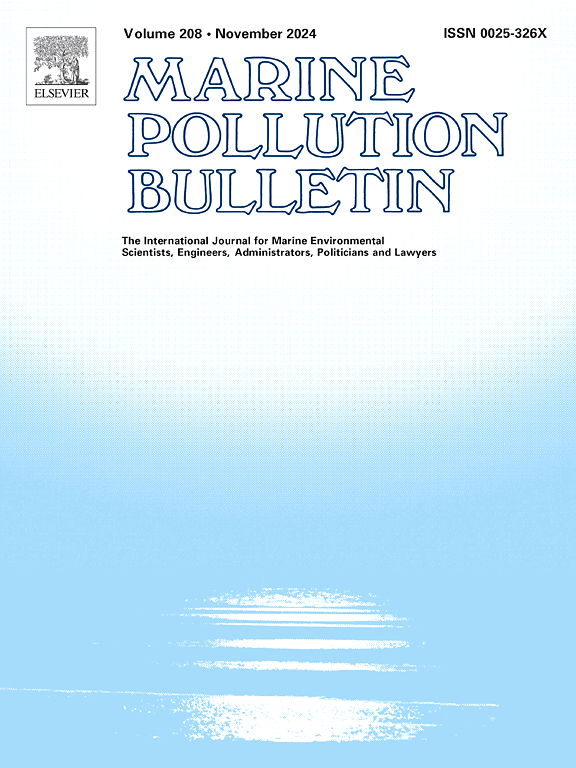A short-lived FAD in the Pacific: Implications and adaptations in the move to biodegradable fish aggregating devices
IF 4.9
3区 环境科学与生态学
Q1 ENVIRONMENTAL SCIENCES
引用次数: 0
Abstract
The development of biodegradable drifting fish aggregation devices (FADs) in tropical tuna fisheries will reduce marine pollution and, potentially, stranding events when FADs are abandoned or lost. Using estimated FAD deployment densities across the entire Pacific Ocean, we examine the relative change in FAD loss out of equatorial fishing zones, under differing FAD lifetime scenarios, by simulating FAD drift over two years.
When FADs physically degrade after one year, we found that the greatest reduction in FADs lost out of the fishing ground was in the Western and Central Pacific. However, we also found a two-to-four-fold increase in the number of FADs that will prematurely degrade whilst still potentially operational. These results are discussed in the context of mitigating FAD impacts on marine debris, the need to repair and maintain FADs, and the potential for a future, compensatory effort of deploying increased numbers of FADs by fishing fleets.
太平洋短暂的FAD:向生物可降解鱼类聚集装置移动的影响和适应
在热带金枪鱼渔业中开发可生物降解的漂流鱼类聚集装置(FADs)将减少海洋污染,并可能减少由于FADs被遗弃或丢失而导致的搁浅事件。利用整个太平洋估计的FAD部署密度,我们通过模拟两年以上的FAD漂移,研究了在不同FAD寿命情景下赤道捕鱼区FAD损失的相对变化。当FADs在一年后物理退化时,我们发现渔场FADs损失的最大减少是在西太平洋和中太平洋。然而,我们还发现,在仍有可能运行的情况下过早退化的fad数量增加了2到4倍。这些结果将在以下方面加以讨论:减轻FAD对海洋废弃物的影响、修复和维持FAD的需要、以及渔船队今后可能作出的补偿性努力,即部署更多的FAD。
本文章由计算机程序翻译,如有差异,请以英文原文为准。
求助全文
约1分钟内获得全文
求助全文
来源期刊

Marine pollution bulletin
环境科学-海洋与淡水生物学
CiteScore
10.20
自引率
15.50%
发文量
1077
审稿时长
68 days
期刊介绍:
Marine Pollution Bulletin is concerned with the rational use of maritime and marine resources in estuaries, the seas and oceans, as well as with documenting marine pollution and introducing new forms of measurement and analysis. A wide range of topics are discussed as news, comment, reviews and research reports, not only on effluent disposal and pollution control, but also on the management, economic aspects and protection of the marine environment in general.
 求助内容:
求助内容: 应助结果提醒方式:
应助结果提醒方式:


